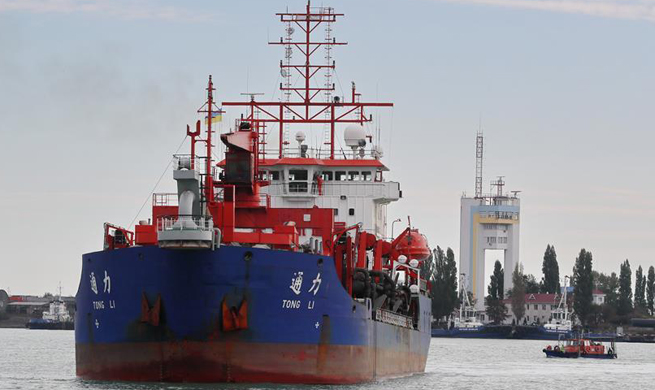by Eric J. Lyman
ROME, Oct. 13 (Xinhua) -- Borrowing costs for the Italian government have fallen to near their lowest levels since the summer, helped by positive trends in the economic and political arenas. But experts warn it may take more than a trickle of good news for yields to drop even further.
Yields on the benchmark 10-year Italian government bond on secondary markets closed trading at 2.06 percent -- their lowest levels in a month and within striking distance of the 1.89-percent level last seen in July.
The spread between Italian bonds and those from Germany also tightened, momentarily reaching 164 basis points (the equivalent of 1.64 percentage points), near its lowest levels since August.
Lower bond yields are reflection of investor confidence in a country's abilities to pay its debts, and they help a government's balance sheets because it means they pay less to borrow money.
Analysts told Xinhua the bond yields are being helped by several factors, including faster-than-expected economic growth, rising exports, and the passage of an electoral reform measure that helped assuage fears that a political crisis might have been brewing.
"Part of it is a game of expectations," Andrea Fumagalli, a professor of political economics at the University of Pavia and the author of book about government bonds, said in an interview. "At the start of the year, expectations were lower based on weak economic prospects and the fear of government instability. Now, those things are improving and the yields are starting to reflect that."
Political problems in Spain related to the independence movement in the Spanish region of Catalonia may have also frightened some investors from Spanish bonds into Italian bond markets, analysts said.
Fumagalli noted that as long as the spread between Italian and German yields stays between 140 and 200 basis points, the situation is considered "normal." He said there was little chance they would move outside that range for the foreseeable future, barring something unexpected.
Giuseppe De Arcangelis, an economist in the political science department at Rome's La Sapienza University, told Xinhua it is "hard to say" whether the downward trend in interest rates for Italian bonds is too optimistic or in line with where rates should be.
"The political stability issue seems like it is resolved for the moment, but the confidence vote is only a short-term measure," De Arcangelis said. "Don't forget we still have to hold the elections that were set up by the political reform."
As things stand now, the elections are expected to take place in the first half of next year, though an exact date has not yet been set.
De Arcangelis said that even if the recent gains in bond yields is merited, investors would probably do well to temper their enthusiasm about the Italian market.
"This current situation could hold until near the end of the year," he said. "But after that, I would expect political worries to emerge again, as the election approaches."
Fumagalli agreed. "Things are looking fine for the moment, but there is a lot of work to do for the Italian economy," he said. "Italy remains the only major European economy that is still smaller than it was before the start of the economic crisis in 2008. A lot must still happen to reverse that."

















